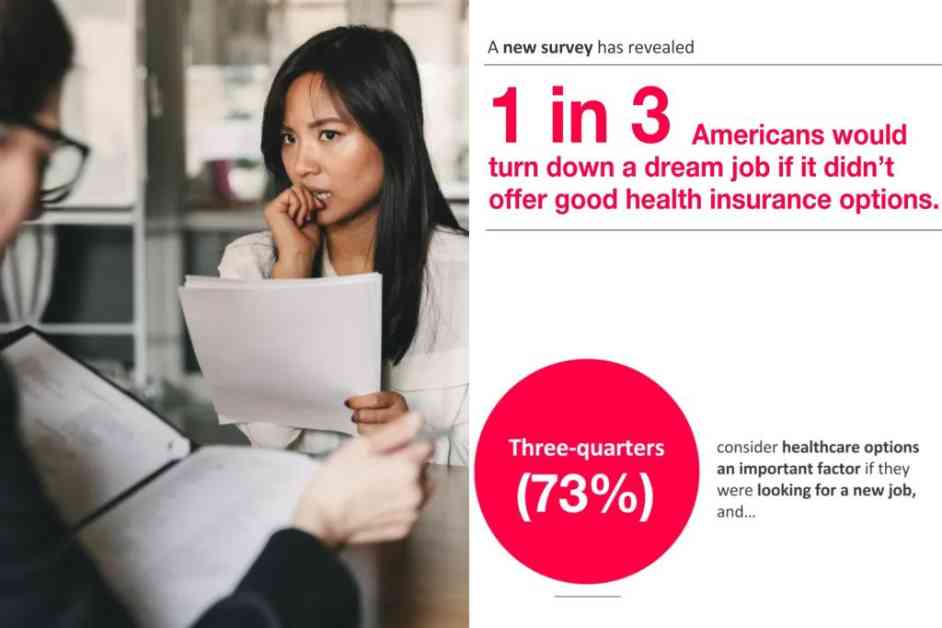A recent survey conducted on 2,000 U.S. adults has shed light on the significance of good health insurance options in job decisions. The study revealed that one in three Americans would decline a dream job if it didn’t provide adequate health insurance coverage. This emphasizes the importance individuals place on healthcare benefits when considering new job opportunities.
The survey further highlighted that 73% of respondents consider healthcare options as a crucial factor when looking for a new job. Additionally, 63% of participants mentioned that they would not hesitate to inquire about health insurance options during a job interview. This indicates a growing awareness and concern among individuals regarding their healthcare coverage provided by employers.
Despite the emphasis on healthcare benefits, 42% of respondents feel that their current employers offer only the bare minimum health insurance options. Moreover, 44% believe that they could access better health insurance choices if they raised the issue with their employer. This suggests a need for improved healthcare benefits in the workplace to meet the expectations and needs of employees.
With the enrollment season for benefits ongoing, the study revealed that many individuals find their current healthcare coverage lacking or unaffordable. In fact, 42% expressed willingness to change jobs if a prospective employer offered better healthcare benefits. This indicates a significant willingness among individuals to prioritize health insurance options in their job decisions.
The survey also found that 42% of currently employed individuals feel that their employers do not prioritize their health or that of their colleagues, particularly those earning below $60,000 annually. This suggests a disparity in healthcare benefits based on income levels, highlighting the need for more inclusive and comprehensive health insurance coverage in the workplace.
The study identified affordability as a major concern for respondents, with nearly half stating that they could only afford under $100 for unexpected health or medical expenses out-of-pocket. This financial constraint was especially prevalent among those with incomes below $60,000, indicating a need for more affordable healthcare options for individuals across different income brackets.
Furthermore, respondents expressed a desire for comprehensive healthcare coverage, including dental, vision, hospital stays, prescription drug coverage, and mental and behavioral health services. This reflects a growing demand for holistic health insurance plans that cater to various healthcare needs beyond basic medical services.
In conclusion, the survey underscores the importance of healthcare benefits in the job market and the need for employers to offer comprehensive and affordable health insurance options to meet the evolving needs of employees. By prioritizing healthcare coverage and addressing affordability concerns, employers can create a more supportive and inclusive work environment that values the health and well-being of their workforce.

